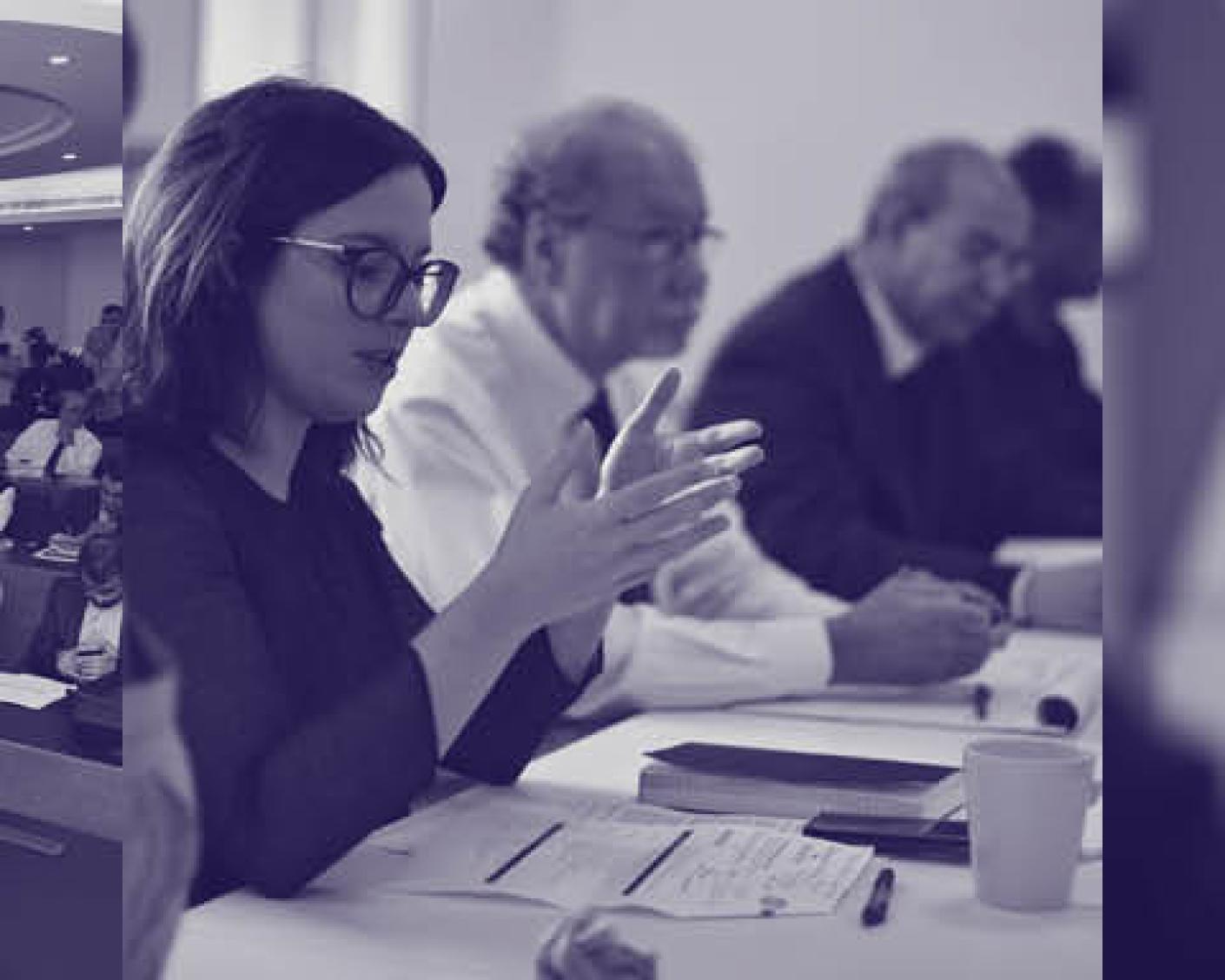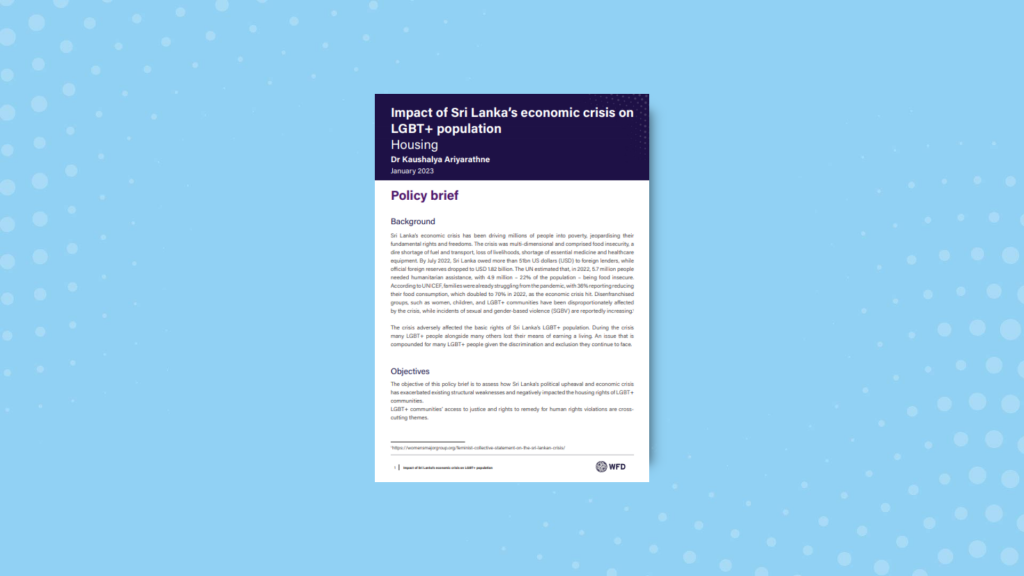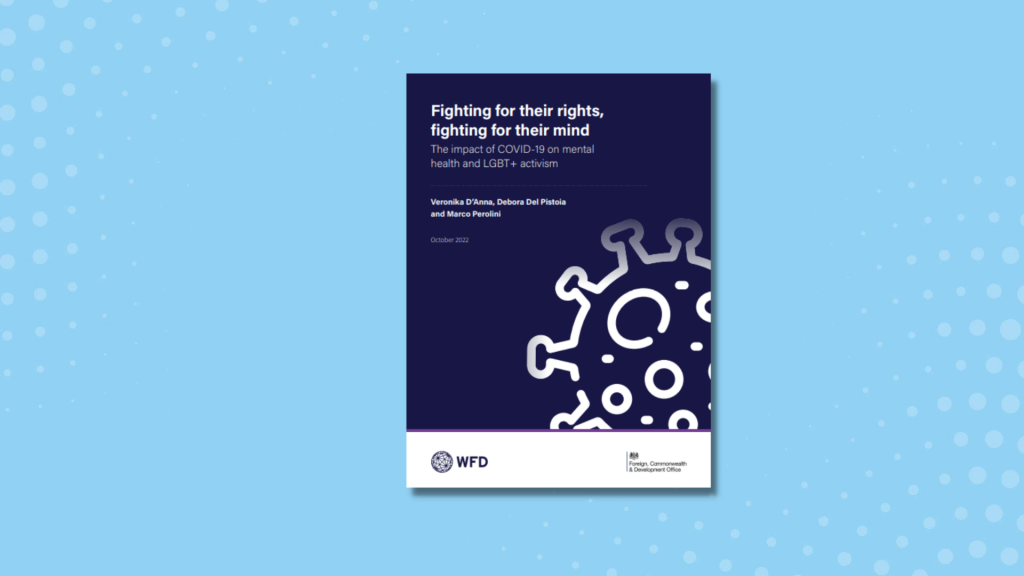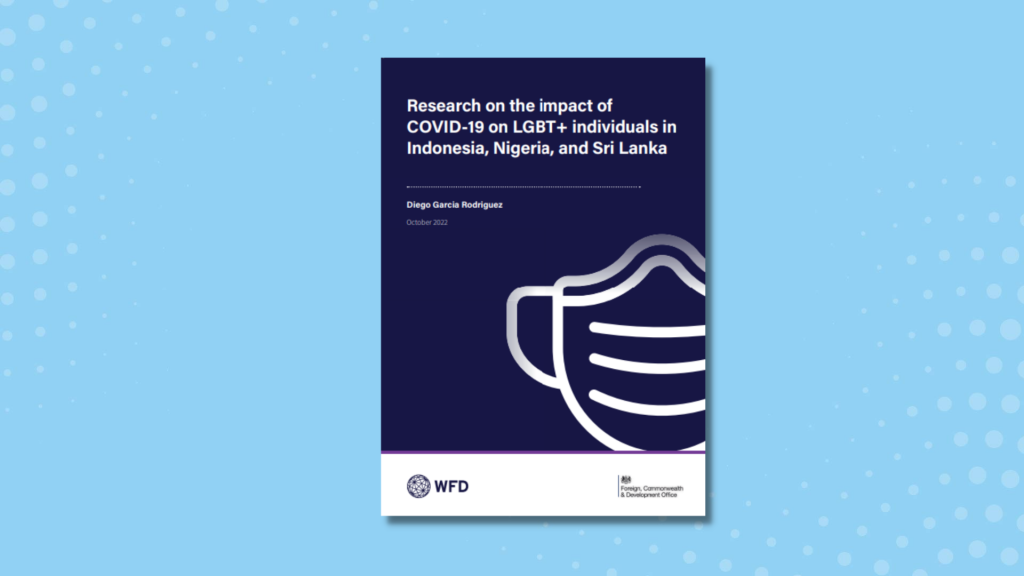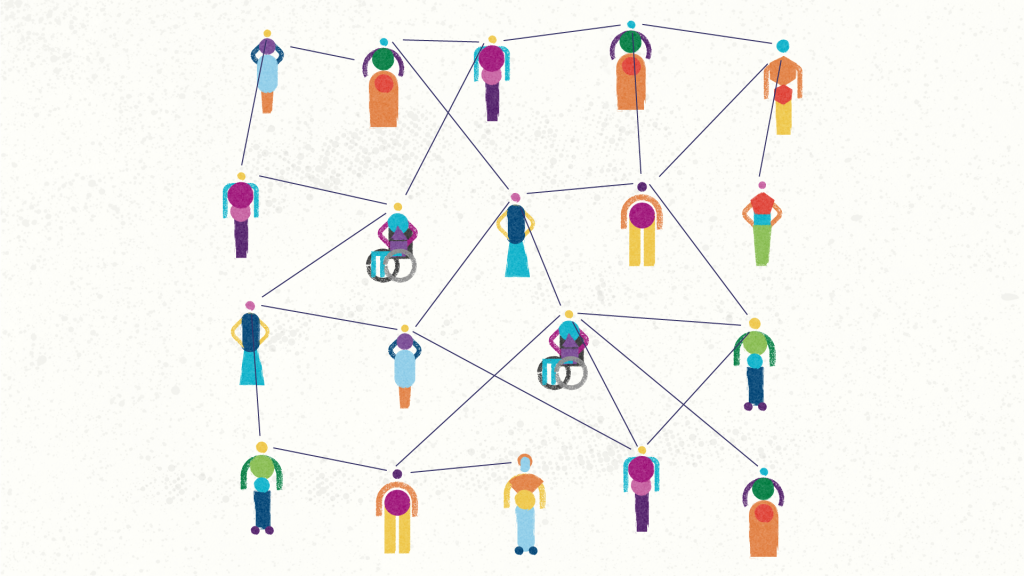WFD supports LGBT+ people’s right to equality through strengthening democratic institutions and practices. Progress for WFD means both advancing LGBT+ people’s rights to equality in contexts favourable to pursuing change, including through law and/or policy reform, as well as mitigating the rollback of rights and holding the line in inert or regressive contexts. WFD takes an intersectional approach, recognising the harms LGBT+ people experience due to multiple and intersecting forms of discrimination based on a range of factors, including gender, sexual orientation, race, ethnicity, ability, economic status, and profession.
To achieve this, WFD follows three main avenues to equality and inclusion:
- Improving the capacity of governments, parliamentarians, decision makers and non-government actors to enhance legislation and policy and to deliver effective oversight of the implementation of law and policy.
- Building and strengthening collaborative relationships and alliances between and among political decision-makers and non-government actors and ensuring the flow of reliable tailored information and evidence among stakeholders.
- Encouraging government actors, parliamentarians, decision makers and non-government actors to improve the protection of the human rights of LGBT+ people, eliminate discrimination, and counter mis- and dis-information on democracy and democratic freedoms.
WFD’s programming in this area has supported work in around 20 countries and territories around the world as well as global research and events. WFD has partnered with organisations such as the Kaleidoscope Trust (KT) since 2020 and delivered the Global Equality Project (Phases I and II) and the Commonwealth Equality Project (CEP).
WFD’s work to advance LGBT+ equality includes:
- Training and capacity-building workshops for MPs, CSOs, and decision-makers;
- Workshops with political parties around the human rights and fundamental freedoms of LGBT+ people;
- Roundtables and engagements with policymakers, CSOs and communities to share lived experiences;
- Countering hate speech and disinformation: decolonising narratives on LGBT+ equality;
- Mentoring and learning exchange visits;
- Supporting civil society organisations to take a leading role in the process of Post-Legislative Scrutiny (PLS);
- Production of research products and tools to inform and strengthen parliamentary debates and democratic processes.
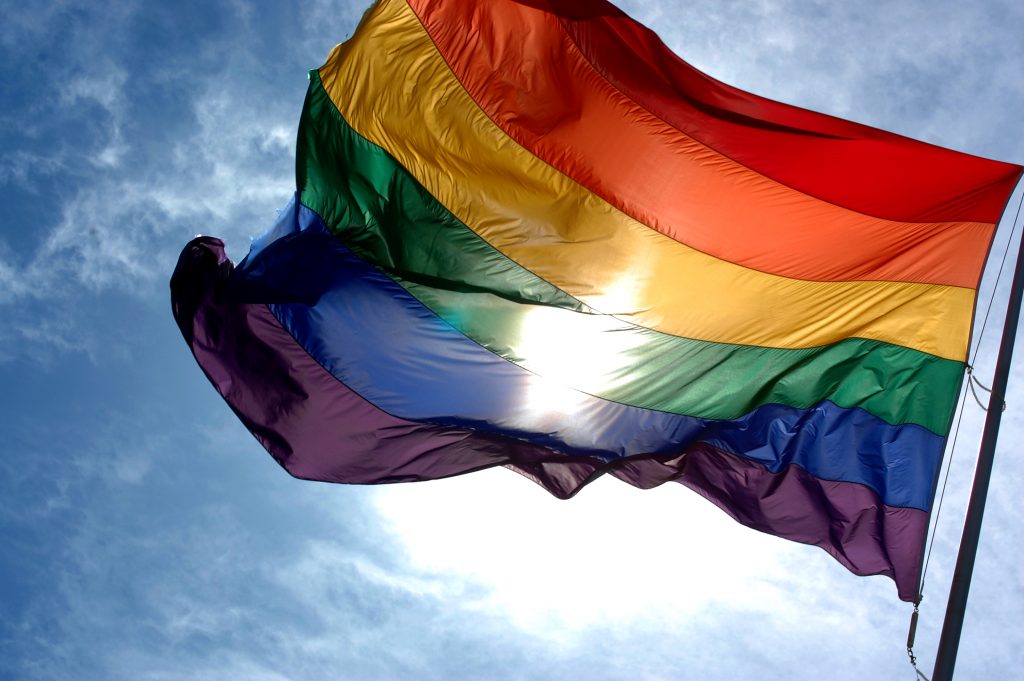
Under the Commonwealth Equality Project (CEP), WFD engaged and worked with different stakeholders on an evidence-based approach to LGBT+ issues in Sri Lanka. WFD’s CEP programme provided two key areas of contribution during 2020/21. Firstly, the generation of evidence: a detailed public survey in all 25 districts of Sri Lanka was, for the very first time, conducted. The survey examined public knowledge, attitudes, and perceptions of LGBT+ people. The second area of contribution was on outreach.
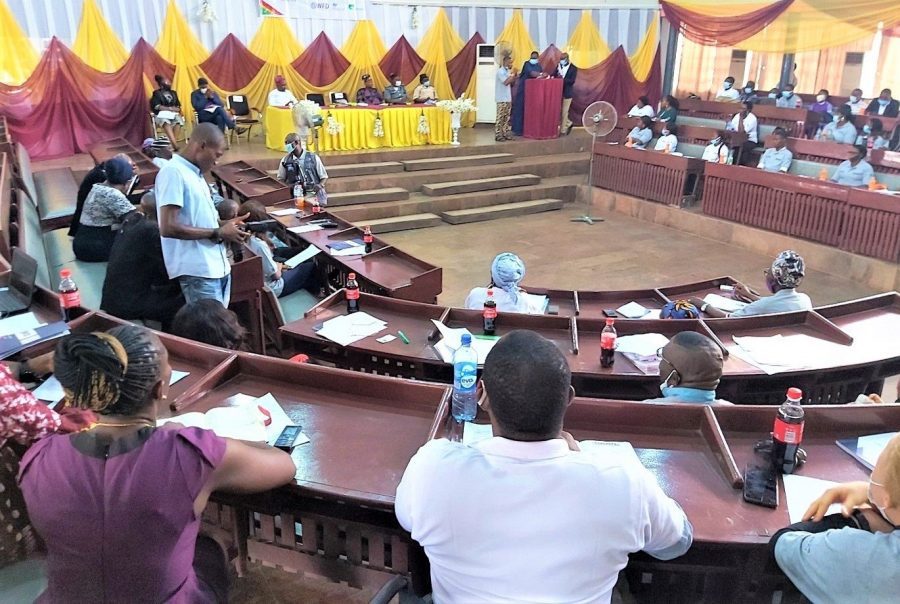
WFD, through the Commonwealth Equality Project (CEP), supported the Oyo State House of Assembly and the people of Oyo state to review and pass the Violence Against Persons Prohibition (VAPP) Bill into law.

Building the case for inclusion reaches beyond making sure people understand hard cold facts about the ruinous costs of discrimination. Art and culture can be a positive transformative force, helping to build understanding and empathy. To help build awareness of the realities of LGBT+ peoples’ lives in Sri Lanka, WFD provided funding for a series of fictional short films, which premiered in the country in late 2021 and will go on tour around the country in 2022.
